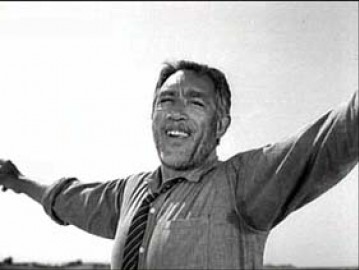Today, December 6th, is the Feast Day of St. Nikolaos − or Nicholas, Nick, Ἅγιος Νικόλαος (Greek for Saint Nikolaos), and also known as Sinterklaas (Dutch for Santa Claus).
Yes, Santa Claus was (Oops! I meant, is!) Greek.
After all, didn’t everything and everyone originate from the Greeks? At least that’s what my family (the Greek side, by marriage) keep telling me … didn’t the father in the movie, My Big Fat Greek Wedding, say that the Greeks invented Windex? But, not all of it is said tongue-in-cheek. Such as:
Medical terminology … derived from Greek.
Catholicism … Greek roots (I’ve had some heated discussions on that one – being the Roman Catholic that I am!).
Geometry … Greek.
Yes, this ancient, brilliant and culturally rich civilization is the birthplace of many great things and people, not the least of which is our beloved Santa Claus.
Born (≈ 270 A.D.) in the Greco-Roman town of Myra (in Lycia <of Asia Minor> – now part of modern-day Turkey), Nikolaos was a very pious man. He was also extremely practical, generous and kind. The youngest man ever to become a priest (and later, a bishop), Nikolaos performed many kind deeds, such as throwing bags of gold coins down chimneys to aid the poor and providing dowries for women to save them from lives of lechery. He is often depicted (in art) as wearing dramatic red robes and holding three gold coins. His “Name Day” is the anniversary of his death (December 6) and this day is still a gift-giving date in many countries, although December 25th has become the de facto date for gift exchange within the Christian faith.
St. Nikolaos had a reputation for secret gift-giving and is considered the patron saint of sailors and children, butchers, bakers, and judges. He is also the patron saint of Greece.
What really made him so special? He was a generous soul whose generosity was born of an understanding and empathy for those in pain (physically, emotionally and spiritually). He was persecuted and imprisoned for his faith, which made him all the more compassionate and an ardent supporter for people who were battling a loss of freedom.
Freedom. We live for it. We fight for it. And, we die for it.
Anthony Quinn, as Alexis Zorba, in the film (Zorba the Greek), directed by Michael Cacoyannis.
When that brilliant writer from Crete, Nikos Kazantzakis, wrote his novel, Zorba the Greek, he depicted “freedom” (Greek-style) as:
Alexis Zorba: Damn it boss, I like you too much not to say it. You’ve got everything except one thing: madness! A man needs a little madness, or else…
Basil: Or else?
Alexis Zorba: …he never dares cut the rope and be free.
Which brings me to modern-day Greece. And these are my own personal, editorial comments….
On October 28th, since World War II, the Greeks celebrate Ohi Day (Επέτειος του «’Οχι» Epeteios tou “‘Ohi”, Anniversary of the “No”) when the then Greek Prime Minister, Ioannis Metaxas rejected the ultimatum made by Italian dictator Benito Mussolini on October 28, 1940, which “demanded that Greece allow Axis forces to enter Greek territory and occupy certain unspecified ‘strategic locations’ or otherwise face war.”
Today, Greece is embroiled in an economic crisis that is threatening the freedom of their country. The choice: become deeply indebted to the European Union, but maintain solvency OR go into insolvency, but maintain a degree of independence.
In my lifetime, I’ve experienced economic prosperity and not-so-prosperous situations, like: being indebted, and therefore enslaved AND being cash-poor, yet − amazingly − free.
Greece is a proud, gloriously unruly (Zorba-esque), and resilient nation. My personal belief, is that they stand true to who they are and say:
όχι (No!)
And then, slowly and steadily, pick themselves up, dust themselves off, and start fresh.
Back to St. Nikoloas – his name means “victory for the people” − very apropos. I will leave it at that.
One more word, to my own, special and beloved Nick ….. as well as all the other Nicks in the world who celebrate their Name Day today …. χρόνια πολλά (hronia polla / Happy Name Day) !


